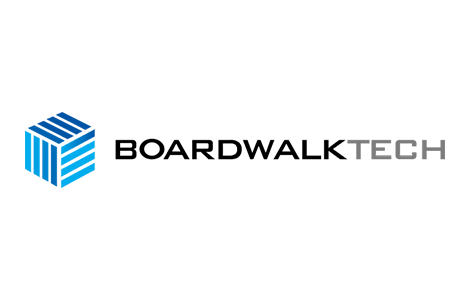Boardwalktech
Last Updated:
Analyst Coverage: Daniel Howard
EUC (End User Computing) management is a space dominated by two extremes: on the one hand, you have vendors like Apparity, Mitratech and CIMCON that help you to corral your EUC assets into a semblance of order, reducing but not eliminating the risks they pose; on the other, you have low-code development tools like Appian that allow you to totally recreate your EUC assets as applications, actually eliminating the aforementioned risk but at the cost of very substantial development time and often abandoning the original look and feel of the asset, forcing users to effectively retrain. At least, this is the view which Boardwalktech brings to the space. Accordingly, it seeks to provide a best-of-both-worlds middle ground via its Velocity product.
More specifically, Velocity can rapidly remediate your Excel spreadsheets into “technology managed” applications. This eliminates the physical presence and associated risks of the original spreadsheets (and of storing data on users’ desktops), but without the prohibitive cost and high user impact of their total recreation as low-code apps. It also retains the use of Excel as an interface.
How this works is that all of the data previously contained in spreadsheets is stored centrally in a database, alongside a variety of templates that correspond to the original spreadsheet structures. Users access these familiar assets through a web portal, operating on it via native Excel, which now works as an in-browser Excel interface sharing cell-level changes with the server (which keeps a full audit trail). Users work on the data in-memory leveraging existing formulae and macros, but can’t save data to their desktops, so when all is said and done there is no footprint left on local machines.
This has obvious advantages: users are literally unable to store EUC data locally, let alone email it on to somebody else, so this data is actively controlled rather than just governed and tracked as in several other EUC management solutions. At the same time, it is clearly much faster (and is often going to be easier on your users) to stick spreadsheets into Velocity rather than to remake them as apps.
The reason this all works – Velocity’s secret sauce, if you will – is due to its patented back-end database single schema technology for managing grids of data. This maps very well to spreadsheets (for obvious reasons) and allows Velocity to retain much of the native Excel experience on the desktop despite it being connected to a database. Without it, trying to operate Excel in a browser would require custom schemas and recreating formulae on the server, an expensive and unpleasant experience to say the least (not to mention it would mean losing the flexibility that gives Excel much of its utility).
In short, Boardwalktech’s proposition is really rather compelling. That said, converting all of your spreadsheets into full-blown apps, even with low-code, just isn’t a practical proposition for the vast majority of organisations, and consequently we don’t see that side of things as serious competition in the EUC management space. Rather, we would position Velocity as ideal for organisations that want to go one step further than just managing EUC assets centrally to actually controlling them centrally, in exchange for just a little bit of extra onboarding and a smidge less ease of use.
Solutions
Coming soon.


